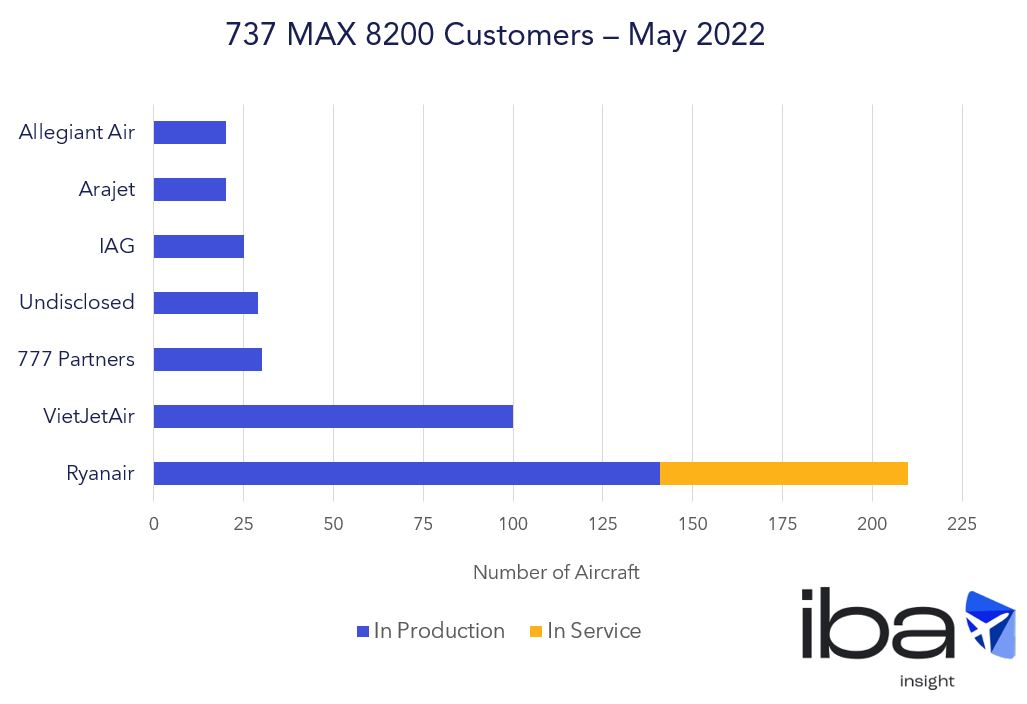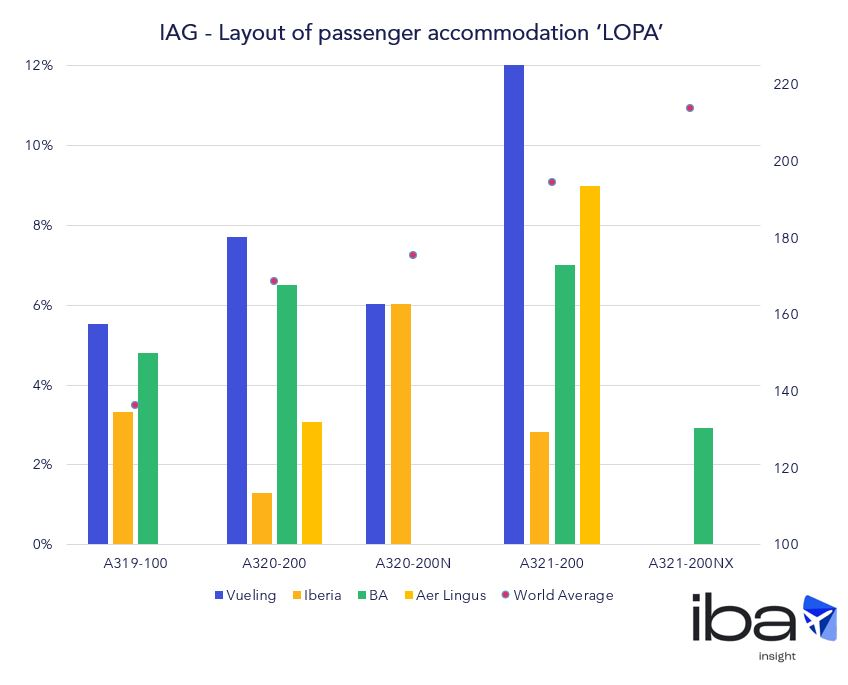24/05/2022
Following the recent order from the International Airlines Group (IAG) for the Boeing 737 MAX 8200 and Boeing 737 MAX 10, our experts explore which of the group's airlines are likely to operate the high-density variant.
The announcement of more firm aircraft orders for 50 Boeing 737 MAX models (pending shareholder approval) is a clear win for the OEM amidst a troubled news cycle. In Asia, China Southern and China Eastern recently announced that the MAX family would not form part of its near-term fleet plans, despite the aircraft reportedly being close to gaining approval for a return to service from Chinese regulators. Meanwhile, in Europe, Boeing has received sharp words from Ryanair's Michael O'Leary, one of the largest customers for the 737 in the region.
Amidst these negative stories, the win of a marquee customer is of special significance to Boeing, following other major flag carriers such as Qantas and KLM announcing Airbus as their preferred partner in their respective narrowbody fleet renewal strategies. This is buoyed by the recently announcement from U.S. ultra low-cost carrier, Allegiant Air, for an order for 50 Boeing 737 MAX aircraft, with the option to take a further 50 jets.
Aircraft order data from IBA Insight identifies IAG as the fifth-largest customer for the type (with Ryanair as the largest). Whilst IAG is one of the outlying customers for the 8200 variant, it is a significant one.

IAG's selection of the Boeing 737 MAX 8200 is perhaps a surprising choice. The high-density 8200 was designed with low-cost carriers in mind and is already in service on popular flights in Europe with Ryanair. That said, IAG's Airbus narrowbody fleet features an above-average seating density amongst legacy carriers, with typically 5-10% more seats than the world average LOPA (layout of passenger accommodation).

Whilst IAG's low-cost carrier Vueling appears to be the obvious choice for placement of the 8200, we believe there could be extra potential to deploy the aircraft across the group's airlines.
Fleet data from IBA Insight indicates that many of the Airbus A321-200 aircraft in service across all four airlines are around 15-20 years old, and therefore potential candidates for retirement in the coming years. Based on this, we believe that British Airways' London Gatwick based subsidiary BA Euroflyer could also be a strong option. The 197 seat 737 MAX 8200 would allow the carrier to lower unit costs, providing British Airways with a strong hand in competing with Gatwick's incumbent low-cost carriers.
IBA Airlines provides detailed global fleet, flight, and schedule views with accurate and up-to-date intelligence on over 1,200 commercial airlines globally and their operations.